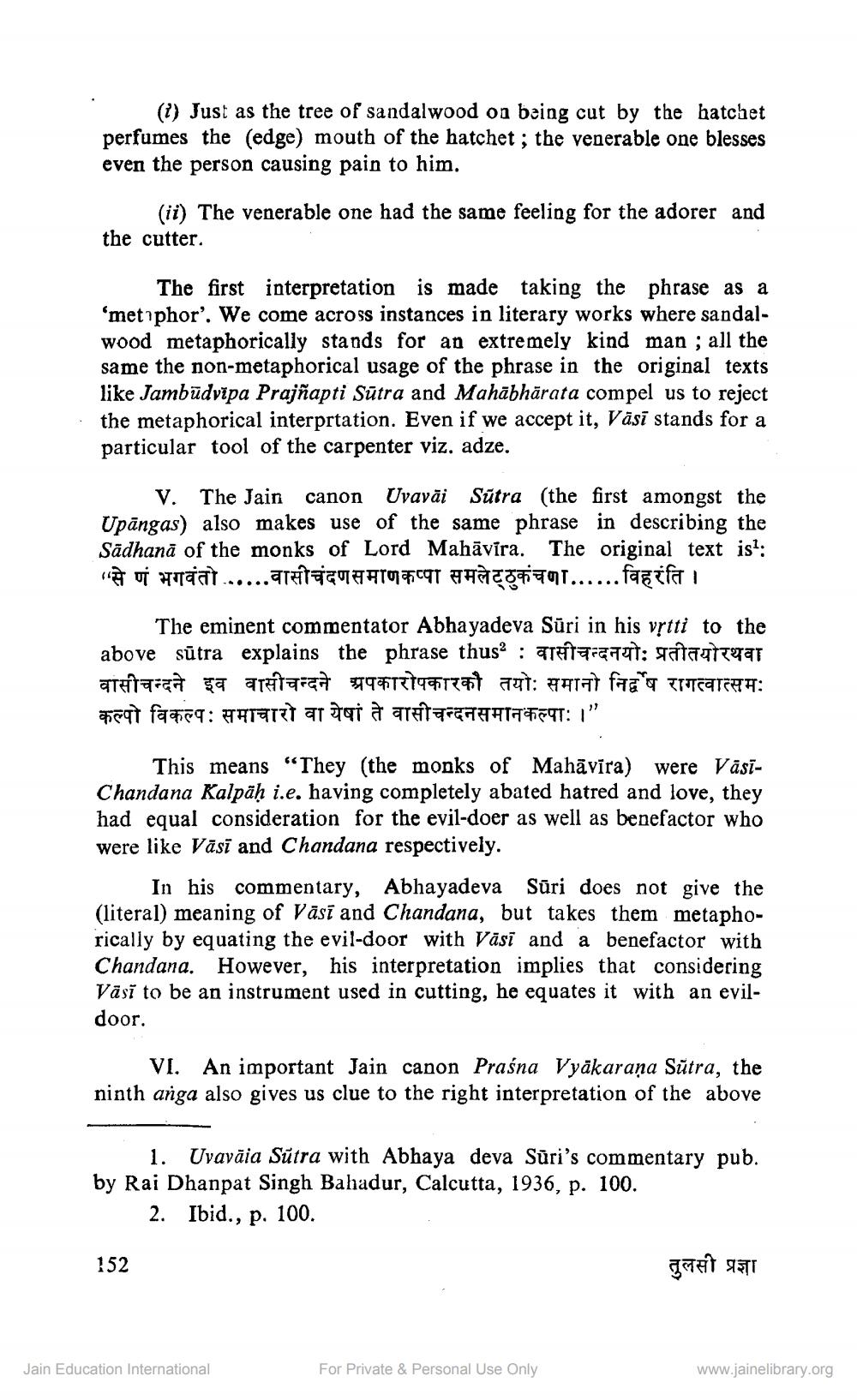________________
(7) Just as the tree of sandalwood on being cut by the hatchet perfumes the (edge) mouth of the hatchet; the venerable one blesses even the person causing pain to him.
(ii) The venerable one had the same feeling for the adorer and the cutter.
The first interpretation is made taking the phrase as a 'metaphor'. We come across instances in literary works where sandalwood metaphorically stands for an extremely kind man ; all the same the non-metaphorical usage of the phrase in the original texts like Jambudvipa Prajñapti Sūtra and Mahābhārata compel us to reject the metaphorical interprtation. Even if we accept it, Vāsī stands for a particular tool of the carpenter viz. adze.
V. The Jain canon Uvavãi Sūtra (the first amongst the Upangas) also makes use of the same phrase in describing the Sadhana of the monks of Lord Mahavira. The original text is1: "से णं भगवंतो ......वासी चंदण समाणकप्पा समलेट्ठकंचना विहति ।
The eminent commentator Abhayadeva Sūri in his vṛtti to the above sūtra explains the phrase thus ' : वासीचन्दनयोः प्रतीतयोरथवा वासचन्दने इव वासीचन्दने अपकारोपकारकौ तयोः समानो निर्दोष रागत्वात्समः कल्पो विकल्प: समाचारो वा येषां ते वासीचन्दनसमानकल्पाः ।"
This means "They (the monks of Mahāvīra) were VāsīChandana Kalpäḥ i.e. having completely abated hatred and love, they had equal consideration for the evil-doer as well as benefactor who were like Vāsī and Chandana respectively.
In his commentary, Abhayadeva Sūri does not give the (literal) meaning of Vāsī and Chandana, but takes them metaphorically by equating the evil-door with Vāsī and a benefactor with Chandana. However, his interpretation implies that considering Vāsī to be an instrument used in cutting, he equates it with an evildoor.
VI. An important Jain canon Praśna Vyakaraṇa Sutra, the ninth anga also gives us clue to the right interpretation of the above
1. Uvavāia Sutra with Abhaya deva Suri's commentary pub. by Rai Dhanpat Singh Bahadur, Calcutta, 1936, p. 100.
2. Ibid., p. 100.
152
Jain Education International
For Private & Personal Use Only
तुलसी प्रज्ञा
www.jainelibrary.org




